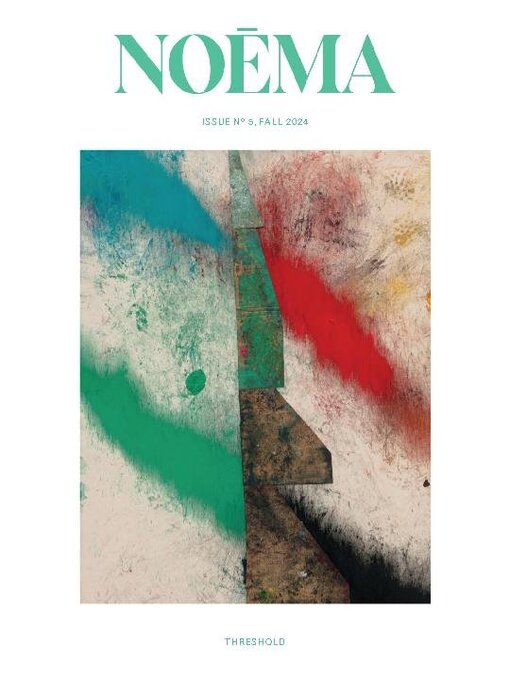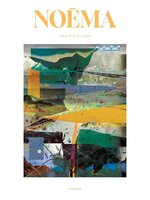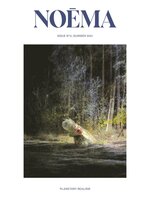Noema is a magazine exploring the transformations sweeping our world. We publish essays, interviews, reportage, videos and art on the overlapping realms of philosophy, governance, geopolitics, economics, technology and culture. In doing so, our unique approach is to get out of the usual lanes and cross disciplines, social silos and cultural boundaries. From artificial intelligence and the climate crisis to the future of democracy and capitalism, Noema Magazine seeks a deeper understanding of the most pressing challenges of the 21st century.
ABOUT NOEMA
ABOUT THE COVER
Noema Magazine
THRESHOLD
ARTIFICIAL GENERAL INTELLIGENCE IS ALREADY HERE • Today’s most advanced AI models have many flaws, but decades from now, they will be recognized as the first true examples of artificial general intelligence.
THE TRUE DANGER OF SUPERHUMAN AI • The rhetoric over “superhuman” AI implicitly erases what’s most important about being human.
THE FERAL MIND OF ARTIFICIAL INTELLIGENCE • What can we learn about AI from the rare children who grew up untouched by human language or society?
AI COULD BE A BRIDGE TOWARD DIVERSE INTELLIGENCE • Today’s debates about artificial intelligence fail to grapple with deeper questions about who we are and what kind of future we want to build.
WHAT AI TEACHES US ABOUT GOOD WRITING • AI can speed up the writing process, but it doesn’t optimize quality — and it endangers our sense of connection to ourselves and others.
A DIGITAL TWIN MIGHT JUST SAVE YOUR LIFE • Digital twins offer humankind the ability to command virtual replicas of forests, oil fields, cities, supply chains — and even, maybe one day, our very bodies.
Neural Zoo • “Neural Zoo” is an exploration of the ways creativity works: the recombination of known elements into novel ones. These images, created with AI, depict nature rearranged.
AI COULD ACTUALLY HELP REBUILD THE MIDDLE CLASS • AI doesn’t have to be a job destroyer. It offers us the opportunity to extend expertise to a larger set of workers.
REWILDING THE INTERNET • The internet has become an extractive and fragile monoculture. But we can revitalize it using lessons learned by ecologists.
CHINA IN 2035 • China’s youthful urbanization changed the world. What will happen as the country ages and slows down?
WHAT COMES AFTER LIBERALISM • Philosopher John Gray envisions a new Middle Ages where plural jurisdictions find a modus vivendi among clashing conceptions of the good life.
A CLOCK IN THE FOREST • Clocks that use nature to measure time can reintegrate people into the environment and help counteract the calamities of the Anthropocene.
THE WAR AGAINST WEEDS • Pesticides and herbicides made from fossil fuels that are freely available to unwitting consumers poison our land, our bodies and life all around.
PARABLE OF TREE AND STONE • Karen Bakker (1971–2023) was a geography professor at the University of British Columbia. Her award-winning book, “The Sounds of Life” (2022), explores how digital technologies are transforming our ability to listen to nature’s sounds and decode non-human communication.

 Issue V: Threshold
Issue V: Threshold
 Issue IV: Passage
Issue IV: Passage
 Issue III: Rupture
Issue III: Rupture
 Issue II: Planetary Realism
Issue II: Planetary Realism
